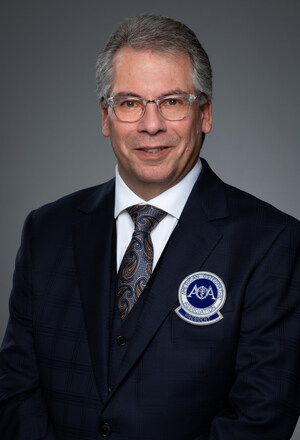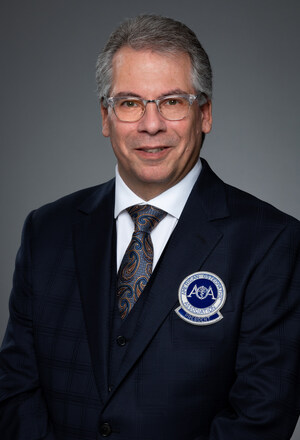
Osteopathic Physicians Support Individualized Approach to Prostate Cancer Screening
CHICAGO, July 21, 2012 /PRNewswire-USNewswire/ -- The decision of whether or not to proceed with a prostate-specific antigen (PSA)-based screening should be made by a patient with consultation from his physician, according to a policy approved today by members of the American Osteopathic Association's (AOA) House of Delegates.
According to the American Cancer Society, one in six men will get prostate cancer in his lifetime, making it the most commonly diagnosed cancer among males in the United States after skin cancer. However, the U.S. Preventive Services Task Force (USPSTF), an independent panel of experts in primary care and prevention that reviews evidence and develops recommendations for clinical preventive services, proposed a recommendation against PSA-based screening in men who do not have symptoms that are highly suspicious for prostate cancer, regardless of age, race or family history.
The screening is done by testing the amount of PSA in a man's blood. If the results are abnormal, further testing is needed to see if there is cancer. The USPSTF feels that healthy men do not need the screening because the benefits of the screening do not outweigh the risks and can often lead to unnecessary testing, intervention and treatment.
The AOA policy recognizes the importance and integrity of the patient-physician relationship and recommends that prostate cancer screenings be individualized. For instance, prostate cancer rates are higher in African Americans, so a patient who is African American and also has a family history of prostate cancer should discuss the PSA-based screening with their physician.
"As an osteopathic physician, I know that there cannot be a 'one size fits all' approach to screening patients for serious diseases like prostate cancer," explains Kevin P. Hubbard, DO, corporate vice president of Heartland Hematology-Oncology Associates in Kansas City, Mo., and clinical professor of medicine at the Kansas City (Mo.) University of Medicine and Biosciences College of Osteopathic Medicine. "This new recommendation is very confusing to patients and makes them unsure of whether or not they should get the PSA screening, but they should feel comfortable discussing their options with their physician."
About the House of Delegates
The AOA's House of Delegates, comprised of more than 500 delegates representing osteopathic state medical associations, specialty societies, interns, residents and students from throughout the country, meets annually in July to set organizational policies and elect new officers.
About the American Osteopathic Association
The American Osteopathic Association (AOA) proudly represents its professional family of more than 100,000 osteopathic physicians (DOs) and osteopathic medical students; promotes public health; encourages scientific research; serves as the primary certifying body for DOs; is the accrediting agency for osteopathic medical schools; and has federal authority to accredit hospitals and other health care facilities. More information on DOs/osteopathic medicine can be found at www.osteopathic.org.
SOURCE American Osteopathic Association





Share this article